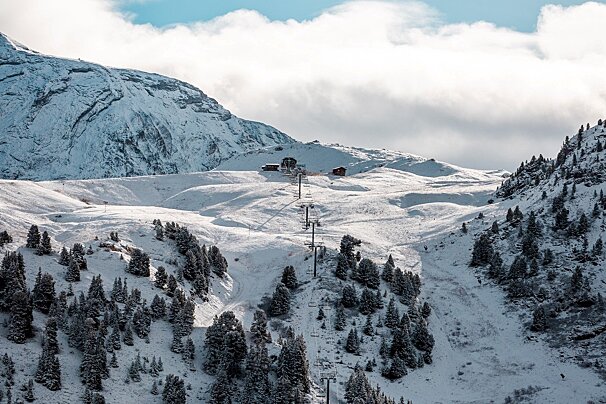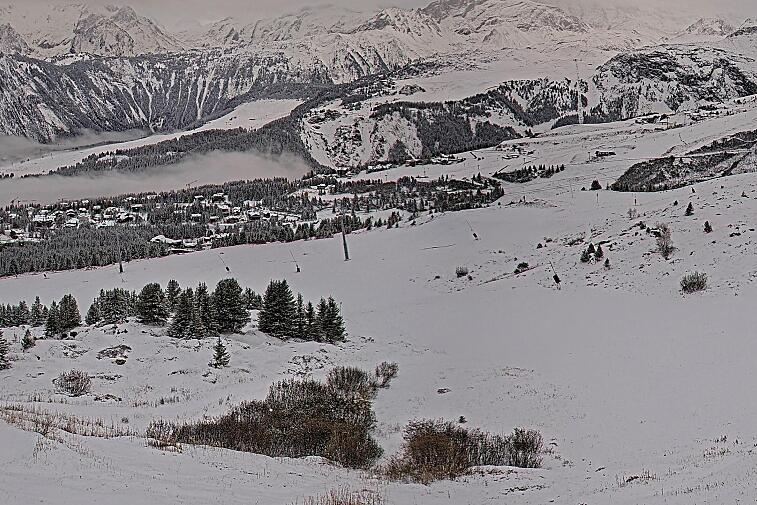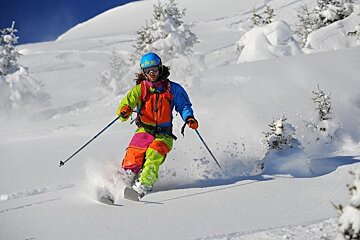
© Andy Lloyd - www.alpictures.eu
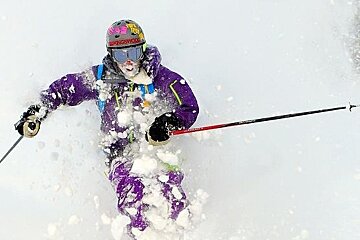
© Andy Lloyd - www.alpictures.eu

© Andy Lloyd - www.alpictures.eu

© Andy Lloyd - www.alpictures.eu
Freeride and powder skiing
Tips to ski the best of the best snow
When skiing powder or free-skiing off-piste terrains its important to realise, especially if you haven’t had too much experience in this type of environment, that certain things you may do on-piste naturally might not work so well here.
A common problem for many skiers moving from piste to off-piste is their upper body management, directly relating to their shoulders. When you ski on-piste and are trying to make dynamic turns you tend to stand with rounded shoulders. This usually aids a dynamic stance.
If your shoulders are rounded in powder or off-piste terrain, you may find them putting you out of balance. The main reason for this is that when you are free-skiing you tend to find yourself trying to absorb large pressure shocks from the ever-changing terrain. If your shoulders are forwards when you’re in the process of trying to take the absorption you’ll find that no matter how much you try to take the shock by absorbing with the legs, the shoulders will cause the whole body to be hurled forward with a huge break at the waist. This almost always results in eating snow.
Try to think about managing your shoulders for a while.
Again, at first on-piste, then when you feel you’ve got the hang of it, try it in the off-piste environment. A little bit of modification here can save a whole lot of time putting your skis back on in the powder just after that front flip that you didn’t want to do.
There’s a major difference between light powder snow and new snow that’s been affected by high winds.
When snow falls with high winds it gets compacted together and rather than having a soft forgiving feel to it, it actually becomes quite firm and not so easy to absorb into. When the fresh snow gets like this you need to take a different approach to skiing through it. The firmness of the snow means that you’ve got to work a lot harder to ski it. You need to adopt a way of skiing in which you are ‘powering’ through your turns.
Power turning can be achieved by really forcing your legs out underneath you and keeping a constant pressure against and into the snow. As you start your turn allow yourself to rise above the snow as it will be difficult to turn in. As you come above the snow get prepared to start driving your skis back in it again to round your turn off. The amount of power needed to push the skis back in the firm surface of the snow is twice as much as you would normally need. It’s a bit like going to the gym and stacking up a couple of extra blocks for your leg extensions. If you're working your legs with this degree of power, you’ll find yourself powering through the firmly packed windblown snow and actually enjoying what would otherwise have been a nightmare run.

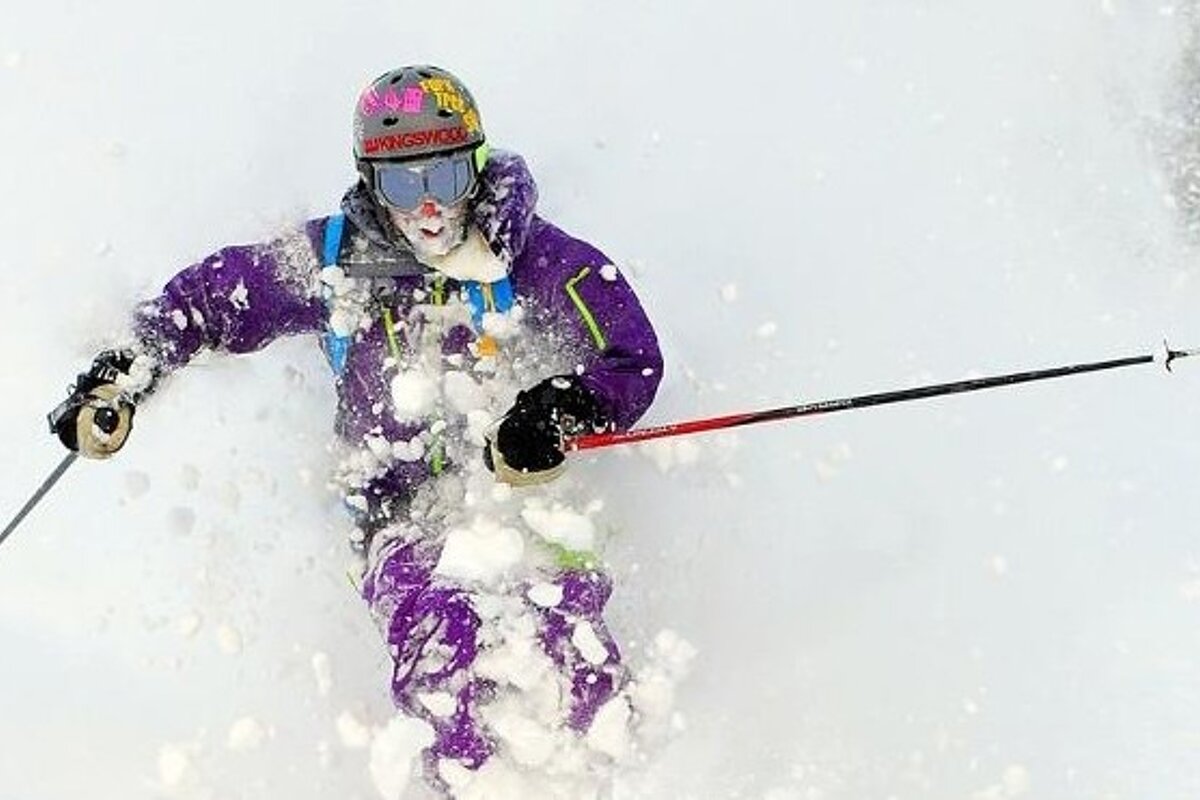



![[itemref] lounge](https://cdm0lfbn.cloudimg.io/v7/_images_base_/image_uploader/photos/original/2103-1-eden-20_1_21030001_1000__wwatermark1363125858_1363125858.jpg?ua=1579868553&p=carousel)









